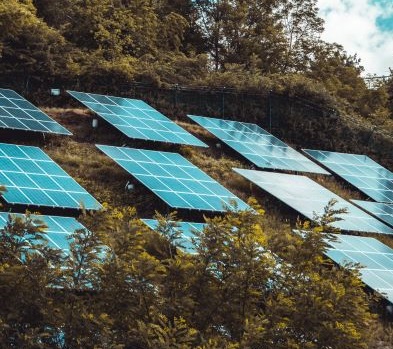Solar Panel Authority Canada
Identifying the Moral Issues About Solar Energy
Good Day!
Solar energy is generally considered to be a cleaner and more sustainable alternative to traditional fossil fuel-based energy sources. However, like any human activity, there can be some moral issues associated with our rush to embrace solar energy. Here are a few examples:
1. Land use:
Large-scale solar energy projects often require significant land area, which can raise concerns about habitat disruption and potential conflicts with local communities, especially when projects are developed without proper consultation or consideration for indigenous peoples' rights.

2. Supply chain:
The production of solar panels involves the extraction and processing of raw materials, such as silicon, which can have environmental and social implications. Mining activities can harm ecosystems and cause social unrest if not managed responsibly. Additionally, there have been concerns regarding the working conditions and labor practices in some parts of the solar panel manufacturing supply chain.
3. Waste management:
Solar panels have a lifespan of around 25-30 years, after which they need to be replaced. The disposal and recycling of old solar panels present challenges, as some materials used in panels can be harmful to the environment if not handled properly. Ensuring responsible end-of-life management is essential to mitigate potential negative impacts.
4. Access and affordability:
While solar energy has the potential to provide decentralized power generation and energy access to underserved communities, there can be barriers to its widespread adoption. Initial installation costs and access to financing may limit its affordability for some individuals or communities, exacerbating existing energy inequalities.
5. Global equity:
The production and deployment of solar energy technologies are not evenly distributed worldwide. Some regions may benefit more from solar energy, while others with limited resources and infrastructure may struggle to access or afford this renewable energy source. Achieving global equity in the transition to solar energy requires addressing these disparities.
Addressing these moral issues involves implementing responsible and sustainable practices throughout the lifecycle of solar energy projects, promoting equitable access and distribution, and ensuring transparency and accountability in the supply chain.
Cheers!
Katie
- Posted On: May 19, 2023
Send us your feedback:
Recent Blog Entries...
- Net Metering In Ontario-A Guide To Efficient Home Energy
- Comparing Solar Installations Professional Vs DIY
- Why Solar Energy Shines Brighter For Homes Than Geothermal Energy
- The Economics Of DIY Solar Projects In Canada
- Choosing The Right Inverter For DIY Solar
- Installing Solar Panels A Complete DIY Guide


Comments & Replies
Harim Says:
I think we need to worry less about the ethics of using solar energy since for the last hundred years huge corporations have been getting rich forcing us to fossil fuels. Do you think any of those fat cats think about ethics? Nope - it all about the profits.
Mike Says:
I agree that waste management is a huge issue but we have to remember that technology advances very quickly and by the time all of the solar panels that we are using now have passed their useful life, we will probably have ways of dealing with them. We cannot continue to look for reasons not to embrace solar.
Jesus Says:
It is not important to discuss the morality of solar energy when there are so many other issues related to morality that are being ignored. What about how God made the world and the immigrants are destroying it?
Join the conversation using the form below...